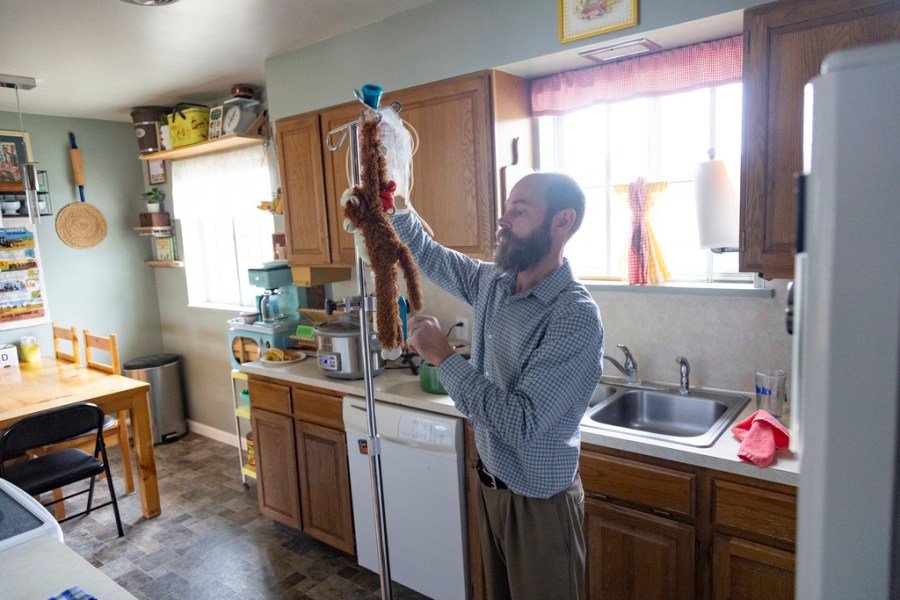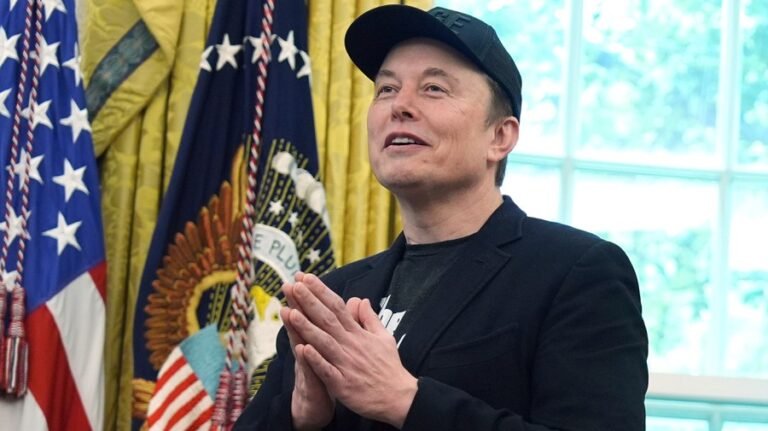
In Arroyo Seco, N.M., Vanessa Herrera routinely inserts a needle into her 6-year-old son’s chest, administering life-saving medication for his rare bleeding disorder. This weekly ritual, made possible by Medicaid, represents the thin line between health and catastrophe for millions of American families.
For Herrera, a single working mother of three, the math is brutally simple: “Without Medicaid, we would not be able to afford it,” she says. “We are scared to lose it, because I don’t want to lose my son.”
Across America, more than 53 million people are family caregivers like Herrera’s — parents supporting children with rare diseases, adult children assisting aging parents, spouses tending to partners with chronic illnesses. And more than 4 million family caregivers rely on Medicaid for their own health care coverage.
This invisible workforce forms the foundation of our nation’s long-term care system. Now, with the House passing a budget bill that slashes more than $1 trillion from Medicaid and the Senate Finance Committee advancing similar devastating cuts, these essential caregivers fear for the already-fragile support system that enables their critical work.
As a governor managing the frontline impacts of health care policy on American families, and as someone who has also been a family caregiver, I have deep concerns about how these proposed cuts would unravel the already fragile support system that makes caregiving possible for millions of families. This isn’t merely a budgetary abstraction. It is a looming humanitarian crisis with faces and names attached.
Take New Mexico, where approximately 40 percent of residents rely on Medicaid — the highest per-capita coverage in the nation. The proposed cuts would eliminate up to $2.8 billion in federal funding in the first year alone.
New Mexico isn’t alone. In 15 states, at least one-fifth of working-age adults in rural areas depend on Medicaid. Tellingly, eight of these 15 highly vulnerable states went for President Trump in the last election — a stark reminder that health care security transcends partisan divides.
For family caregivers, Medicaid often represents the only meaningful support available. As the primary funder of home and community-based services, it helps 4.5 million people with complex needs remain in their homes rather than face costlier institutional care. These services include respite care that gives exhausted caregivers essential breaks, training programs that teach specialized caregiving skills, and self-directed services that allow Medicaid enrollees to hire family members as caregivers.
The proposed cuts would unravel this safety net in important ways.
As federal funding disappears, states will be forced into impossible decisions about services critical to caregiving. History shows that when forced to cut spending, states typically target home and community-based services first — the very programs that help people maintain independence and provide critical support to family caregivers. Essential services like respite care, caregiver training and self-directed care options would be reclassified from “life-sustaining” to “optional” in state budgets.
Compounding these challenges, the proposed work requirements for Medicaid fail to recognize economic reality. Many recipients who can work already do. And those who serve as full-time caregivers for family members with medical needs are already working — just without a paycheck.
The math is straightforward: a family caregiver providing round-the-clock care to elderly parent costs our Medicaid system virtually nothing, whereas institutional settings such as nursing homes or board-and-care facilities can cost taxpayers $100,000 per year per patient.
Work requirement proposals create bureaucratic hurdles for people already stretched thin, potentially forcing more into expensive institutional care — dramatically increasing costs while reducing quality of life for the most vulnerable.
The House-passed bill included an exemption from work requirements for “the parent, guardian, or caretaker relative of a disabled individual or a dependent child,” but it notably fails to address those caring for seniors or individuals with serious health conditions like cancer.
Even with these limited exemptions, strict work requirements create an excessive administrative burden for family caregivers already navigating the complexities of daily care. Additionally, families must verify their eligibility twice yearly, adding yet another layer of bureaucracy to their already demanding caregiving responsibilities.
As the Senate considers the House-passed bill, we call on all senators to recognize the care crisis unfolding in states across America and reject these devastating cuts. Our nation must come together to strengthen Medicaid’s support for family caregivers, acknowledging their indispensable role in health care delivery.
Investing in family caregivers through Medicaid isn’t just compassionate policy; it’s fiscal common sense. By enabling care at home, we prevent costly institutional care, reduce emergency room visits, and address workforce shortages in long-term care. There are millions of family caregivers like Vanessa Herrera filling critical gaps in our nation’s health care system every day. If we fail to protect Medicaid, we fail them — and ultimately, we fail ourselves.
Michelle Lujan Grisham, a Democrat, is governor of New Mexico. Jason Resendez is president and CEO of the National Alliance for Caregiving.






